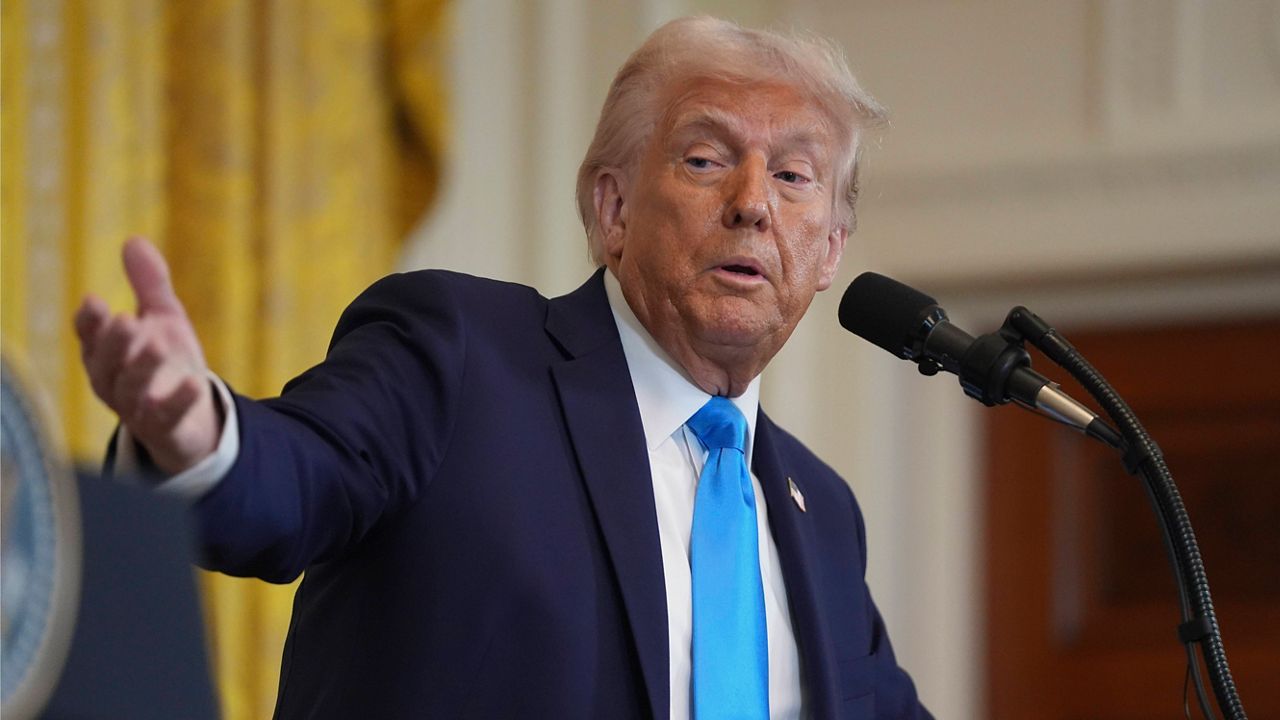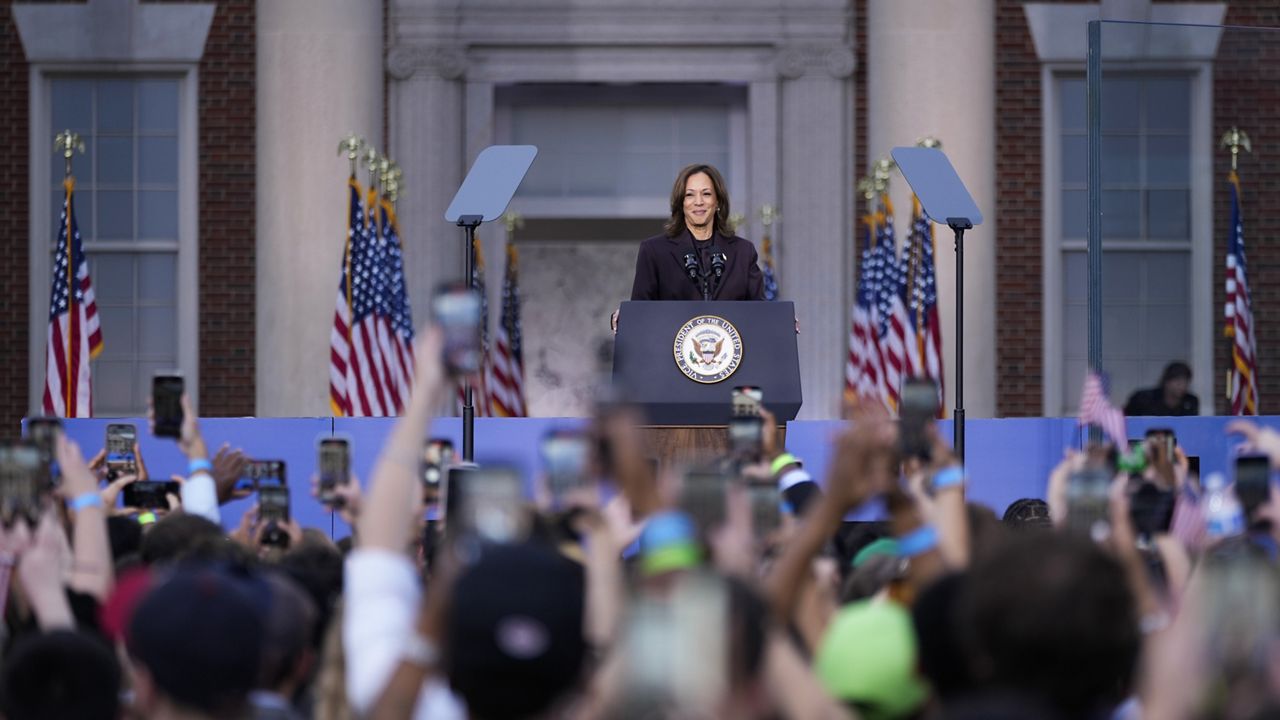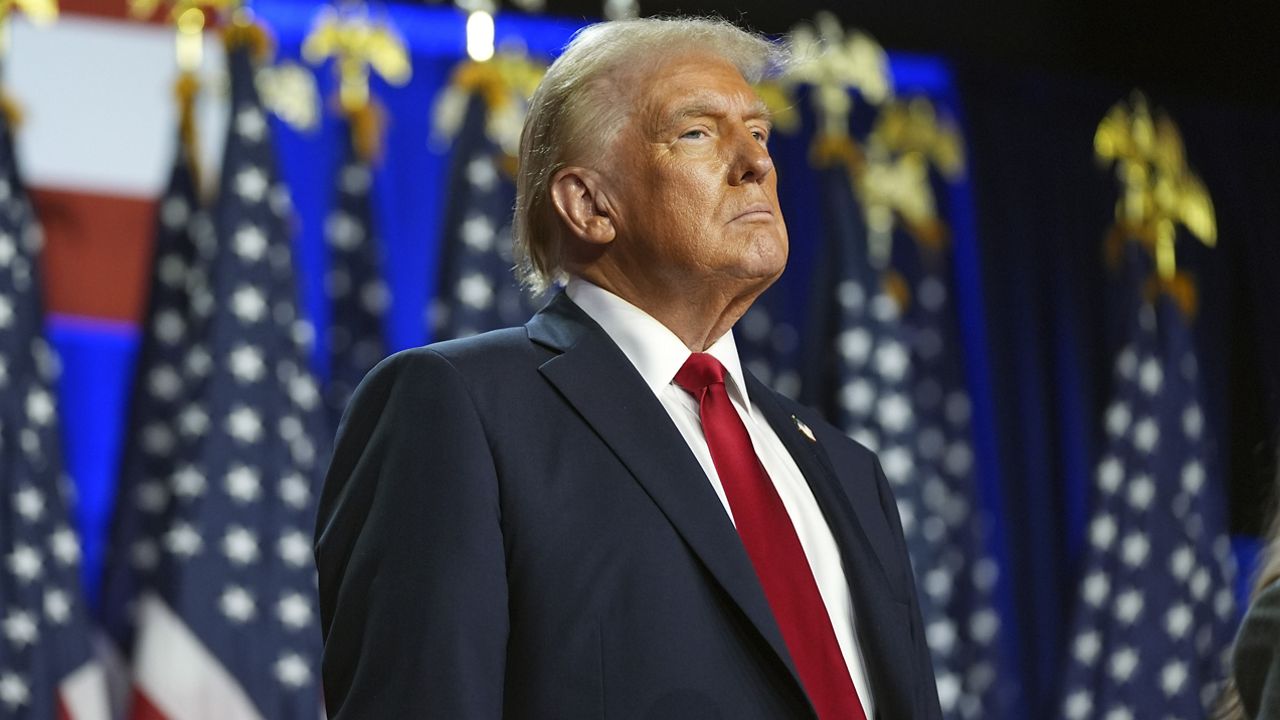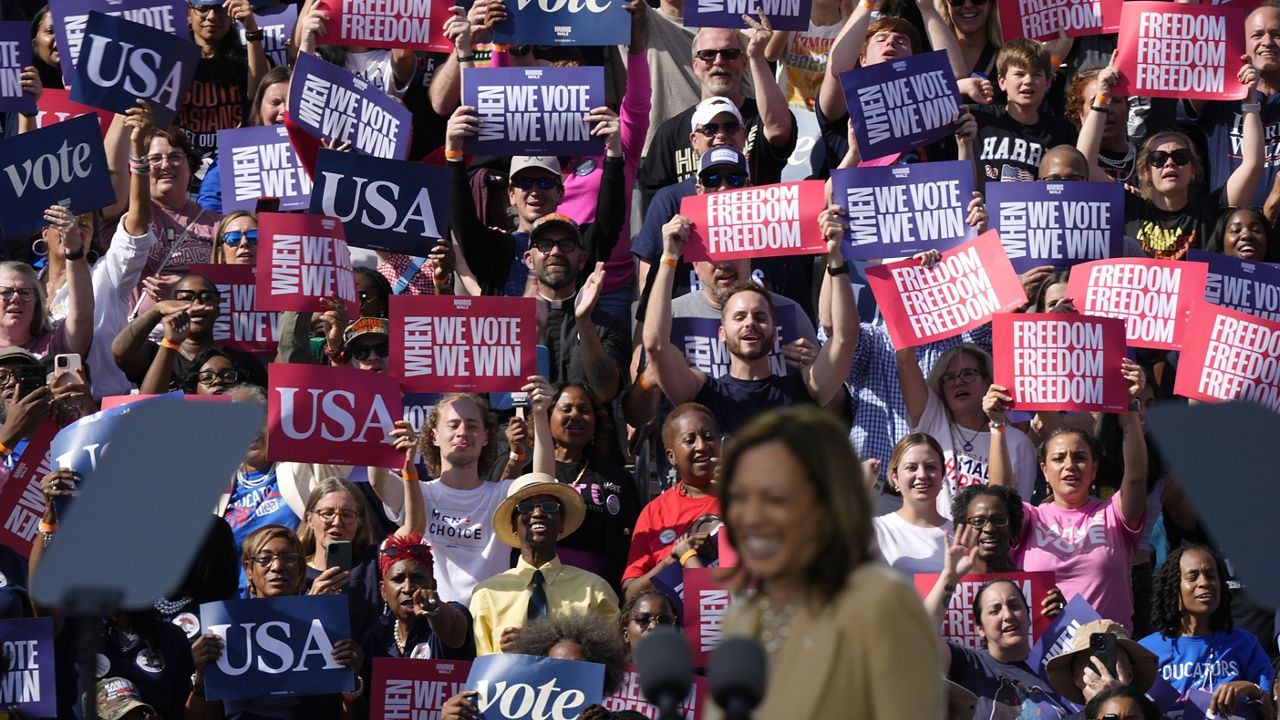Returning to battleground Pennsylvania on Monday, former President Donald Trump sat down with a group of farmers and supporters outside Pittsburgh before a rally at Indiana University of Pennsylvania later in the evening.
He listened and responded to the farmers, manufacturers and landowners aired their grievances, from high fuel costs and estate taxes to Chinese companies buying up farmland and the decline in small farms in the United States. Then, as the roundtable wrapped up, Trump noted the John Deere tractors positioned behind him in the Smithton barn and threatened if reelected to hit the world’s largest agricultural equipment manufacturer with a 200% tariff if the company followed through with plans to move some of its manufacturing to Mexico.
“I just noticed behind me, John Deere tractors. I know a lot about John Deere. I love the company, but as you know, they've announced a few days ago that they're going to move a lot of their manufacturing business to Mexico,” Trump said. “I'm just notifying John Deere right now, if you do that, we're putting a 200% tariff on everything that you want to sell into the United States.”
“I buy a lot of John Deere, tremendous. I'm one of their big customers. I buy a lot of John Deere product as a private person, but if they're going to do that, we're going to put a 200% tariff on everything that they want to send back into the United States,” he added.
Trump said his policy would mean “our country is going to make a lot of money” or John Deere could “sell it to another country. They’re entitled to do that.” The Harris campaign and many economists have argued that Trump’s tariffs plans would be harmful to the U.S. economy and cost U.S. households thousands of dollars more per year.
John Deere's public relations department responded on Tuesday to a request for comment with information about their "commitment to U.S. manufacturing," including citing $2 billion investments in domestc factories since 2019. But the company did not directly comment on Trump's remarks.
When pressed by Spectrum News at his event with the farmers in Pennsylvania, Trump declined to address the evaluations from economists that conclude his plans would raise costs for Americans, instead insisting in what appeared to be a separate thought that he wouldn’t need Congress to push his tariffs through.
“They’ll approve it. And number one, I don't need them. I don't need Congress, but they'll approve it. I'll have the right to impose them myself if they don’t. I'd rather get their support. The ones that understand business all support it,” Trump said, before soliciting support from the nearby Pennsylvania GOP Senate candidate David McCormick and pledging to place tariffs on the European Union, Mexico and China.
But not even most Republican lawmakers are on board with Trump’s tariff plans, including one that would implement a 10% tariff on all imports. Sens. John Thune, R-S.D., and John Cornyn, R-Texas -- two competitors to replace Kentucky Sen. Mitch McConnell as Senate Republicans’ leader -- criticized the plan last month, as did several other prominent GOP senators.
“Even as many middle-class and working Americans still face the burden of high costs, Donald Trump wants to raise taxes on middle class families – and now he’s promising to bulldoze Congress to get it done,” Harris campaign spokesperson Sarafina Chitika said in a statement, dubbing Trump’s plan a “national sales tax.”
“This is the core tenet of Trump’s Project 2025 playbook: seize power for himself, squeeze the middle class to the tune of nearly $4,000 a year, and make high costs even worse – all as he and his billionaire friends get another tax giveaway.”
The Harris campaign cited analyses of Trump’s plans by the conservative American Action Forum and the liberal Center for American Progress, both of which concluded the former president’s proposed tariffs would amount to thousands in additional costs for U.S. families each year. Economists from separate institutions recently told Spectrum News similarly.
“When I hear that Donald Trump has said things like this, as a fellow Wharton alumnus, I wonder what he was doing in his economics classes,” Tom Fullerton, an economics professor at the University of Texas at El Paso, said of the former president who graduated from the Wharton School at the Ivy League’s University of Pennsylvania in 1968.
Trump's event in Smithton was hosted by the Protecting America Initiative, led by Richard Grenell, Trump’s former acting director of national intelligence, and former New York Rep. Lee Zeldin. Grenell said, “China is getting into our farmlands, and we have to be able to see China very clearly.”
At the end of 2022, China held nearly 250,000 acres of U.S. land, which is slightly less than 1% of foreign-held acres, according to the U.S. Department of Agriculture. By comparison, Canada was the largest foreign owner of U.S. land, accounting for 32%, or 14.2 million acres.
The National Agricultural Law Center estimates that 24 states ban or limit foreigners without residency and foreign businesses or governments from owning private farmland.
The Associated Press contributed to this report.







)



